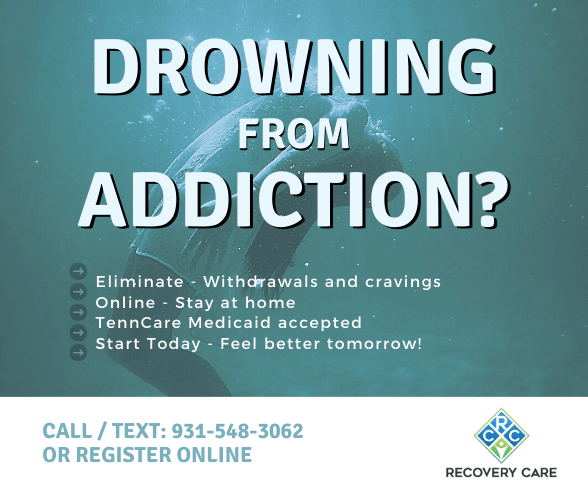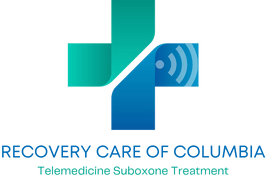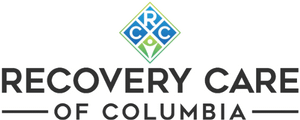Columbia Suboxone Clinic Blog
TennCare Virtual Suboxone Clinic

TennCare Virtual Suboxone Clinic – Recovery Care Clinics of Tennessee
Opioid addiction is a grave public health crisis that has affected countless lives across the United States. The good news is that effective treatments like Suboxone (a combination of buprenorphine and naloxone) have shown remarkable results in helping individuals overcome opioid dependence.
The cost of treatment can be a significant barrier for many. In this article, we’ll discuss how Recovery Care, a virtual Suboxone clinic accepting TennCare, is treating opioid addiction to all Tennessean’s with and without health insurance, making opioid addiction recovery accessible to everyone in the state of Tennessee.
If you’re ready to register online for Suboxone telemedicine, please click one of the links below and get seen often same-day:
- Online Suboxone Treatment for Tennessean’s wirth TennCare Medicaid
- Online Suboxone Treatment for Tennessean’s wirth Commercial Health Insurance
- Online Suboxone Treatment for Tennessean’s using Self-Pay (starting at only $200)
Why do people get addicted to opioids?
- Pain Management: Opioids are often prescribed to manage pain, and some individuals may develop a dependence on them while using them for legitimate medical reasons. Many cases involve patients being terminated from their pain management doctor and turning to the street to supplement their pill problem. Eventually, heroin becomes the cheapest and most readily-available solution. Many opioid pill addicts often transition to snorting heroin which can lead to intravenous drug use.
- Feelings of Euphoria: Opioids can produce feelings of euphoria and relaxation, which some people find pleasurable and may seek to recreate. This is more common for illicit drug users, especially with heroin and fentanyl.
- Tolerance: Over time, the body can develop a tolerance to opioids, meaning that higher doses are needed to achieve the same effect. This can lead to increased use and dependence. People can reach dosage in the hundreds of milligrams daily over time, levels that would be fatal to non-regular opioid users.
- Physical Dependence: The body can become physically dependent on opioids, leading to withdrawal symptoms when someone tries to stop using them. These withdrawal symptoms can be highly uncomfortable and drive continued use. This is typically where friends and families witness the dark side of addiction. An addict can be in a state of mind whereby they are willing to do most anything to avoid opioid withdrawal, even stealing.
- Psychological Factors: Some individuals may have underlying psychological factors, such as depression or anxiety, that make them more susceptible to addiction. The euphoria caused by opioids can alleviate these feelings temporarily, but this starts a vicious cycle, often making the depression and/or anxiety worse.
- Social and Environmental Factors: Peer pressure, exposure to opioids in one’s social circle, or living in an environment where opioids are readily available can also contribute to addiction. Like the old TV ad used to say, “Parents who use drugs often have children who use drugs”.
- Genetic Predisposition: Some people may have a genetic predisposition that makes them more vulnerable to addiction. There is research that validates this, noting some people get addicted to opioids much faster than others, and can be “more” addicted as a result of genetic factors.
Understanding Opioid Addiction
Opioid addiction is a complex medical condition characterized by physical and psychological dependence on opioids, including prescription painkillers (OxyContin, oxycodone, hydrocodone, Opqana, Percocet, hydromorphone, etc) and illegal or “street drugs” like heroin and fentanyl.
Opioid addiction often begins innocently, with patients taking opioids as prescribed by their doctors for pain management. Unfortunately, over time, tolerance builds, leading to increased doses and, ultimately, addiction.
The Importance of Suboxone
Suboxone is an FDA-approved medication-assisted treatment MAT (Medication-assisted treatment) for opioid use disorder.
Suboxone contains two key ingredients:
- Buprenorphine: A partial opioid agonist that helps to reduce cravings and withdrawal symptoms without causing the intense euphoria associated with opioids like heroin or oxycodone.
- Naloxone: An opioid antagonist that discourages misuse by inducing withdrawal symptoms if Suboxone is abused.
Suboxone helps individuals stabilize their lives, regain control, and work towards long-term recovery. However, access to Suboxone treatment is often hampered by financial constraints, which is where Tennessee’s TennCare Medicaid comes into play.
The Role of TennCare Medicaid
Medicaid is a joint federal and state program in Tennessee designed to provide healthcare coverage for low-income individuals and families. It plays a crucial role in ensuring that vulnerable populations have access to essential medical services, including opioid addiction treatment.
By expanding Medicaid eligibility, the Affordable Care Act (ACA) has made it possible for millions of low-income individuals to access Medicaid coverage. This has been instrumental in bridging the gap between opioid addiction treatment and affordability.
Benefits of a Virtual Suboxone Clinics Accepting TennCare Medicaid
- Increased Access: Recovery Care’s Suboxone clinics accept TennCare Medicaid, extending a lifeline to individuals who might otherwise be unable to afford opioid addiction treatment. This helps reach a broader demographic of people in Tennessee who are in need of help.
- Reduced Financial Burden: TennCare Medicaid coverage for Tennessean’s means reduced or no out-of-pocket expenses for individuals seeking virtual Suboxone treatment. This eliminates a significant barrier to recovery.
- Holistic Care: TennCare Medicaid covers comprehensive addiction treatment, including counseling and therapy services in addition to medication. This holistic approach enhances the chances of successful recovery.
- Improved Health Outcomes: When patients can access virtual Suboxone treatment without worrying about the cost, they are more likely to adhere to their treatment plans and achieve better health outcomes.
- Reduction in Crime and Public Costs: Widespread TennCare Medicaid coverage for opioid addiction treatment can lead to a reduction in opioid-related crime and emergency room visits, saving both public and private resources.
- Community Well-being: As more individuals access treatment, communities can begin to heal from the devastating impact of opioid addiction. The ripple effect of recovery extends to families, friends, and neighborhoods.
Virtual (Telemedicine) Suboxone Treatment for all of Tennessee
Not long ago it was nearly impossible to receive online opioid addiction treatment using Suboxone. However, Recovery Care has been granted a special designation from TennCare, AmeriGroup, BlueCare and United Healthcare, allowing Suboxone telemedicine treatment to all Tennessee residents. As a result, Suboxone telemedicine has become a more-popular approach for many Tennesseans.
Recovery Care offers a 100% telemedicine Suboxone program accepting TennCare Medicaid that allows anyone living in the state of Tennessee to receive online Suboxone treatment from the comfort of their own home. Medication delivery is even available for a nominal fee for those who require it!
The opioid addiction crisis is a complex issue that requires a multi-faceted approach, including prevention, harm reduction, and medication-assisted treatment (MAT). Recovery Care is your Tennessee-based virtual Suboxone clinic accepting TennCare Medicaid that provides a turnkey approach to opioid addiction making it accessible to all people in Tennessee, regardless of their financial circumstances.
As a society, we must recognize that opioid addiction is a medical condition that affects people from all walks of life. By providing opioid addiction treatment support through TennCare Medicaid, Recovery Care not only helps individuals break free from the chains of opioid addiction but also contribute to the overall well-being of our Tennessee communities.
If you or someone you know is struggling with opioid addiction and is covered by TennCare Medicaid, don’t hesitate to seek help from Recovery Care, a virtual Suboxone clinic accepting TennCare Medicaid. Recovery is very possible, and TennCare Medicaid insurance taken at Recovery Care is here to support Tennessee families on their journey to a healthier, happier, safer life.
Get Started Today and Feel Better Tomorrow! Register online and get seen often same-day!



